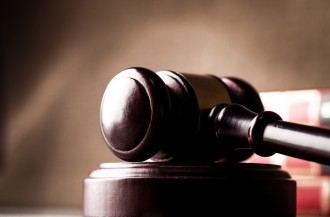
August 10, 2017
Whether You Need to Show Standing Depends on Where You Are Standing
The Federal Circuit (CAFC) held in Consumer Watchdog v. WARF, 753 F.3d 1258, 1263 (Fed. Cir. 2014), that while one does not need to satisfy Article III standing requirements to prosecute an Inter Partes re-examination in front of the Patent Trial and Appeal Board (PTAB), if one does not like the PTAB’s decision and wants to take an appeal to the CAFC, one does need to satisfy the Article III requirements for standing. If the appellant does not show a concrete and particular injury from the PTAB’s decision, the court will not have jurisdiction to hear the appeal. In Consumer Watchdog, it was the patent challenger (Consumer Watchdog) who had lost in front of the PTAB. Because Consumer Watchdog does not actually make, use or sell any products or services that might infringe the patent that they were challenging, the CAFC decided that Consumer Watchdog had no standing to appeal the PTAB’s determination that the challenged claims are patentable. The CAFC dismissed Consumer Watchdog’s appeal. The CAFC recently affirmed in Phigenix Inc. v. ImmunoGen Inc., 845 F.3d 1168, 1172 (Fed. Cir. 2017) that the Consumer Watchdog holding applies just as much to Inter Partes Reviews (under the America Invents Act) as it applied to Inter Partes re-examinations. See also, PPG Indus. Inc. v. Valspar Sourcing Inc., 679 Fed. Appx. 1002, 1005 (Fed. Cir. 2017).
All of these cases concerning standing in appeals from the PTAB feature one common fact pattern: it was always the patent challenger who was trying to appeal to the CAFC. That is to say, it was an open question whether — in a case where there was no allegation of infringement or likelihood of infringement between two parties — an appeal could proceed where the patent owner had lost in front of the PTAB. The CAFC definitively answered this question in Personal Audio v. Electronic Frontier Fdn., No. 16-1123 (Fed. Cir., Aug. 7, 2017), holding that the patent owner whose claim has been held unpatentable at the PTAB has suffered the sort of concrete, particularized injury that will support standing in an Article III court.
This holding makes intuitive good sense. While Consumer Watchdog had not really lost anything when it failed to get WARF’s patent declared invalid, Personal Audio definitely had lost something (its patent claim!) when the EFF convinced the PTAB to declare certain of Personal Audio’s patent claims unpatentable. It makes sense, in other words, to say that a patent owner has standing to appeal from an adverse PTAB judgment, even if a patent challenger does not.
The other open question in this case was, if there is standing to appeal, is EFF allowed to participate, or does the appeal proceed with only Personal Audio allowed to present its case. The court held that once Article III standing is established, then the appeal proceeds as normal, i.e., with an appellant and a respondent. In other words, EFF was permitted to defend the judgment below, even though EFF had no tangible interest that would have supported the appeal if the PTAB decision had gone the other way. The fact that the EFF (which has no personal interest in the outcome of the case) was allowed to participate suggests that the CAFC will likely hold that the PTO has a right to intervene in PTAB appeals when it considers that question in Knowles Electronics v. Matal, No. 16-1954 (Fed. Cir., Jun. 30, 2017).





































